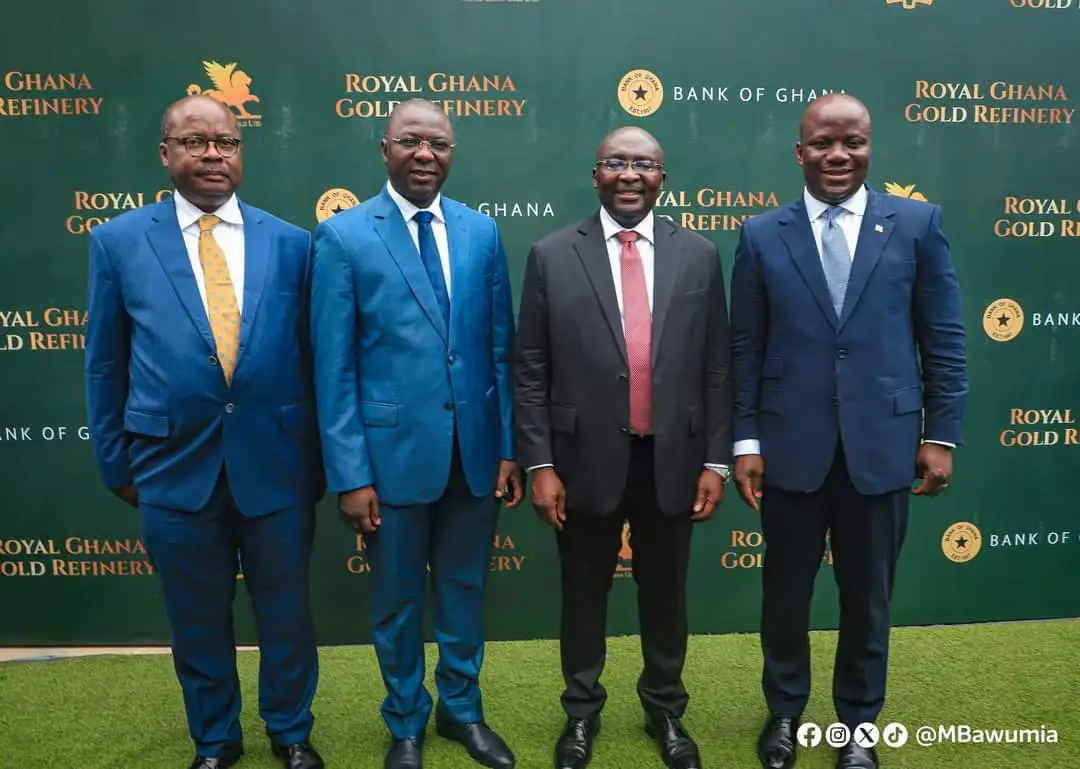adverts
From the late 15th century to the end of the 16th century, historical studies estimate that the area now known as Ghana supplied roughly 30% of the world’s traded gold.
Today, Ghana’s contribution to global gold production has dwindled to less than 3%. Yet, this is still enough to position Ghana as Africa’s largest gold producer.
Despite this legacy, Ghana has struggled to develop downstream gold industries. Over the past two decades, the country has attempted to revive the post-independence dream of refining a significant portion of its gold locally.
adverts
Private sector-driven refineries have emerged as part of this push. However, midstream value addition remains a daunting challenge. Most of these refineries have faltered, underscoring the need for sound governance and robust policymaking—elements that have been notably absent.
The story of the Royal Ghana Gold Refinery exemplifies these governance failures. Touted as a groundbreaking initiative to solve Ghana’s long-standing inability to refine gold into bullion locally, the state-backed refinery has been exposed as an elaborate scheme to enrich select individuals. Beneath the pomp and pageantry surrounding its launch lies a web of deception and mismanagement.
The launch of the Royal Ghana Gold Refinery was presented as a milestone, with claims of being the “first gold refinery in West Africa”—a blatant falsehood. Ghana has had nearly a dozen refineries, the first dating back to the 1960s. This grand spectacle masked deeper issues, including the dubious ownership of the refinery.
The government claimed that an obscure Indian company, Rosy Royal, owned 80% of the refinery.
However, investigations revealed no evidence of Rosy Royal’s financial investment to justify this shareholding. Instead, the company appears to serve as a front for unidentified powerful actors.
A key justification for establishing the refinery was to secure international certification for locally refined gold, enabling Ghana’s gold to fetch full market value. Without certification, major gold miners have little incentive to refine their output locally.
The government’s policy even proposed compelling miners to refine 20% of their production at the new facility.
Yet, due diligence by a top Ghanaian law firm, Bentsi-Enchill, Letsa & Ankomah, found Rosy Royal’s credentials insufficient. The company refused to cooperate, stalling the certification process. Large miners subsequently distanced themselves from the refinery.
The Precious Minerals Marketing Corporation (PMMC), the supervisory agency, has remained silent on these failures, as has the Ministry of Lands and Natural Resources.
Meanwhile, the Bank of Ghana, a key stakeholder purchasing gold for its reserves, has avoided addressing questions about the refinery’s legitimacy.
Attempts to trace Rosy Royal’s principal, Murtaza Sirajbha Samiwala, led investigators to an address in Gujarat, India. The address—“601/602 Juni Bahumal”—proved fictitious.
This revelation underscores the company’s role as a facade, shielding the true beneficiaries of the $80 million equity in the refinery. Despite these red flags, the government proceeded with the project, leaving Ghana’s gold miners and the public bearing the brunt of the fallout.
The Royal Ghana Gold Refinery saga reflects broader governance issues plaguing Ghana’s resource management.
It highlights the need for civil society to play a more prominent role in overseeing development projects. Transparency and accountability must become central to Ghana’s efforts to maximise the value of its gold industry.
Until then, schemes like the Royal Ghana Gold Refinery will continue to undermine the country’s economic potential and tarnish its rich legacy as Africa’s leading gold producer.


